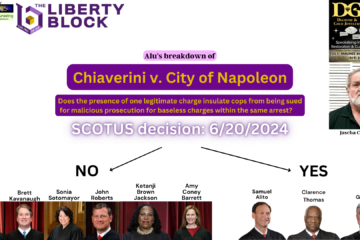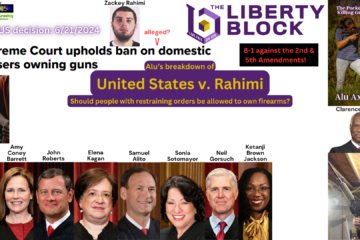The Fourth of July celebrates the formal adoption of the Declaration of Independence. Celebrating independence is a particularly wholesome element of American culture – one in line with most of the traditional American holidays. As an American, we should take pride especially in our independence – but also in our other traditional holidays. Taken together, they show the wholesomeness and moral goodness of traditional American culture – notwithstanding the incessant and never-ending attacks on the materialism and alleged vulgarity of American culture. A brief review of traditional American holidays and then of the meaning of the Fourth of July illustrates the point.
Thanksgiving is a celebration of production. It is a uniquely American holiday (though also celebrated by Canadians) that is both the parent and the child of independence – one cannot exist without the other. To be independent requires one to be productive. America’s celebration of productivity is a symbol of the morality of traditional American culture.
Similar to Thanksgiving, Christmas is a celebration of wealth and productivity. It is also a symbol of justice. The American contribution to Christmas is not the birth of Christ, which occurred 1776 years before the Declaration of Independence – rather, America’s contribution to Christmas is Santa Claus – the symbol of abundance; of corpulence only possible with vast wealth; of happiness, through his rosy cheeks, ever present smile, and his famous “ho ho ho, Merry Christmas!” Santa is also the symbol of justice – only good kids get presents, while naughty kids get a lump of coal. We drink rich eggnog, we eat roasted chestnuts, we give presents to those we love, and we decorate our homes with beautiful lights. Christmas is a symbol of America in all its resplendent goodness.
A week after Christmas we celebrate New Year’s Day. New Year’s in America likewise has a special and unique American meaning. It is a day of new beginnings. It is a day to remember that each person is the master of his own destiny, and that we are only better choices away from having a better life. New Year’s in America is a symbol of freedom, independence, and free will. It is yet another example of the moral wholesomeness of traditional American culture.
Memorial Day and Easter commemorate death – but not death as an end in itself, and not death as some inevitable frustration of being human. Rather, both of these holidays commemorate those who chose death so that others might be free to live better lives. Memorial Day pays homage to those who died because they valued liberty and independence so much that they refused to live as slaves and refused to allow their families and countrymen to live as slaves. Easter pays homage to Christ’s willingness to die in order that other men might live blessed and better lives. These similar holidays likewise show the moral goodness of traditional American culture.
Even Labor Day, that sop to the socialist movement, represents something good and wholesome about America. By paying homage to workers, Labor Day sets yet another cultural marker worshiping the value of hard work. It shows the goodness of American culture.
But in my opinion, the best of them all is Independence Day on the Fourth of July. On that day, we celebrate the Declaration of Independence – which is in my opinion the most perfect document human beings have ever written. It is not merely an ode to independence, it is an ode to reason, to justice, and to the proper way to view other human beings.
The first paragraph of the Declaration begins by stating:
“When in the Course of human events, it becomes necessary for one people to dissolve the political bands which have connected them with another, and to assume among the powers of the earth, the separate and equal station to which the Laws of Nature and of Nature’s God entitle them, a decent respect to the opinions of mankind requires that they should declare the causes which impel them to the separation.”
Note that they begin by acknowledging the need to explain themselves – to “declare the causes which impel them to the separation” so that the honorable opinions of mankind can understand the reason and nature of their actions. This was no temper tantrum. The American Revolution was borne of reason and of respect for the minds of others.
The second paragraph of the Declaration sets forth the basis and nature of moral government. It begins with the famous words “we hold these truths to be self-evident, that all men are created equal, that they are endowed by their Creator with certain unalienable rights, that among these are Life, Liberty, and the Pursuit of Happiness.” This is a repudiation of the Divine Right of Kings, and a declaration that all men are born equal. It is a statement that independence means that every person has a right by nature to chart his own course and be responsible for his own destiny.
After setting forth the nature of moral and proper government, the writers of the Declaration list all of their evidence that the King of England is in fact a tyrant unfit to be the ruler of free men. Note that before enumerating their list of grievances against George III, they state: “to prove this, let Facts be submitted to a candid world.” Again, this was no temper tantrum – this was an appeal to reason, an appeal to logic, and an appeal to facts and evidence. What greater cultural marker can any people celebrate?
The US Constitution, written and adopted eleven years after the Declaration, sought to translate these principles into a governing document. While the Constitution they wrote was itself a tremendous accomplishment, it does not quite match the Declaration. I would have preferred that the Declaration at least have been incorporated by reference into the Constitution – but instead, we have to settle for the Bill of Rights, which itself was and remains a fantastic cultural achievement.
The Bill of Rights established in law that the governing principle of America and the essence of being an American was and is: Individualism. Nowhere is this more clear than in the First Amendment.
“Congress shall make no law respecting an establishment of religion, or prohibiting the free exercise thereof; or abridging the freedom of speech, or of the press; or the right of the people peaceably to assemble, and to petition the government for a redress of grievances.”
In plain English, this is an extension of the Declaration of Independence and in particular of its repudiation of the Divine Right of Kings. The First Amendment says that you are free to think for yourself; free to act on your own judgment, free from having dogmas imposed on you by your rulers, whether they be George III, Joe Biden, or Tony Fauci; and that you have a right to question your government without being punished for doing so. These rights are echoed in later amendments that acknowledge each individual’s rights to self-defense, to be free from unreasonable searches and seizures, to confront accusers, and to a jury of one’s peers – to name the most important illustrations in the Bill of Rights.
Independence Day recognizes not that each person has the freedom of whim worship – rather, it acknowledges your freedom to produce, your freedom to think and act according to your own judgment, and of America’s commitment to reason, logic, and justice. The Fourth of July commemorates all of these cultural American values. American culture is not vulgar, but rather is beautiful and wholesome. Remembering that is my favorite aspect of the Fourth of July.
This article does not necessarily reflect the opinions of The Liberty Block or any of its members. We welcome all forms of serious feedback and debate.



2 Comments
John F Best · July 5, 2022 at 12:45 pm
The Declaration of Independence still stands above the Constitution as our supreme law. The enemy attorneys who wrote the Constitution to subvert the Declaration of Independence did not want you to know this. The Constitution only applies to our public servants, not to us. It is intentionally flawed and you haven’t thought about it long enough to see the flaws. Ask questions.
Deanne · July 5, 2022 at 7:05 pm
Some good thoughts, but also some things I profoundly disagree with…
Thanksgiving was to thank God for His blessings and provision, not a celebration of man’s productivity.
Christmas is a pretty mixed-up holiday. If America added Santa Claus to the mess, it isn’t something to be proud of.
“New Years Day” coincides with nothing and has no meaning. Biblically, as well as according to the founders, the year began in March. Some of the names of the months show exactly when the year should begin and end. SEPTember (7), OCTober (8), NOVember (9), DECember (10), making January the 11th month , and February the 12th month. I avoid using the incorrect numbers assigned to the months except when absolutely necessary on some sort of form where I can’t write out the month.
Other what I call “canned holidays,” may have originally had good intentions, but they are now, to most people, simply days to get paid to not work and to do what you want, with little or no meaning.
Easter is a made-up holiday. The original was Pesach – Passover. I’ll stick with that.
I admire and appreciate the Declaration of Independence, but I do not “celebrate” the Fourth of July. We are not a free country and “celebrating” as if we are, is an insult to what the founders stood for. It should be a day of mourning for what we have lost, and a day of prayer and repentance for what this country represents in the world – the blatant sinfulness; the shameful lack of propriety and morality; the degeneracy; the flaunting of, and promotion of, wickedness; the blatant profanity and obscenity; the obsession with materialism, entertainment, and amusement; the lack of courtesy, respectability, and decency; and the terrible example America sets before the world.
If we stick to talking about the Declaration of Independence, I can honor and celebrate that.
Comments are closed.